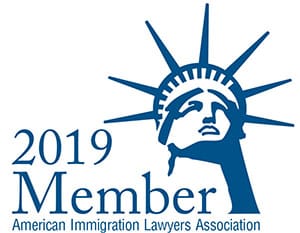For those fighting their way through the family immigration process in the United States, you know that it is complicated. And, unfortunately, some petitioners (citizens and non-citizen applicants) misuse the process to abuse non-citizen family members. How? They abuse their non-citizen family members who are in the immigration process, and then, threaten them with the withdrawal or denial of status to get them to not report that abuse, or to exert some other control, intimidation or coercion. For these abuse victims, there is hope, the Violence Against Women’s Act.
The Violence Against Women Act of 1994
The Violence Against Women Act of 1994 (and subsequent reauthorizations) allows non-citizen abuse victims to separate their application from their United States citizen or lawful permanent resident relative. They can then independently petition for immigration status without that person’s knowledge, and they can do that without their abuser’s consent or participation, allowing them to not only gain independence but also safety.
Not just for women
While VAWA uses the term, women, the act does not just relate to women. Spouses, children and parents (above the age of 21) of United States, citizens and lawful permanent residents are all protected.
Self-petitions
Each abuse victim and their qualified family member can file a VAWA self-petition for immigration classification with the United States Citizenship and Immigration Services. They can do this in person through their local consular office if they are outside the United States. If they are local, they can apply for a status adjustment here.
Eligibility details
For the Greenbelt, Maryland, spouse of the United States citizen or lawful permanent resident, you can file the VAWA self-petition yourself if you were abused directly by that person. You can include on that petition your unmarried children who both have not already filed themselves and who are under 21.
If your child was abused, you can file on their behalf as well. Conversely, if the abuse is from your United States citizen or lawful permanent resident child, you can still file as an abused parent. And, if you are the child, you can file for your self after 21, as long as you do it before age 25, but you must demonstrate in your VAWA application that the abuse was the main reason for your delay in filing. In other words, the abuse is the reason why you did not file before you turned 21.
In future posts, we will explore addition VAWA self-petition information for our Greenbelt, Maryland, readers and for those across the United States.





